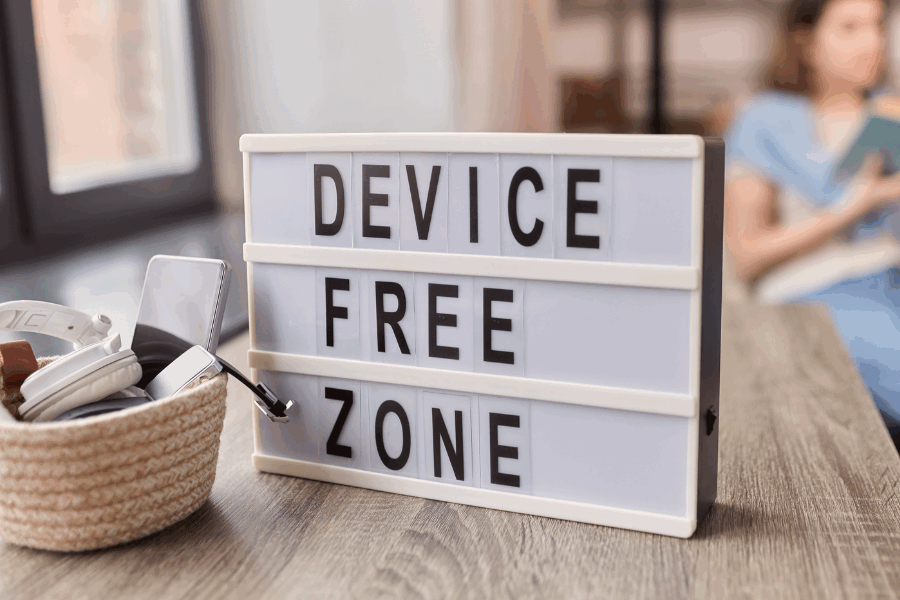
If you’ve ever picked up your phone to “just check one thing” and found yourself still scrolling 30 minutes later, you’re not alone. Excessive screen time can lead to a range of wellbeing issues, including:
- Increased stress and anxiety
- Sleep disruption
- Difficulty focusing on tasks
- Lower productivity
The good news? You don’t have to give up your devices completely. It’s about learning to use them more mindfully.
5 ways to reduce device distraction
- Turn off non-essential notifications: not every alert needs your attention. Switch off notifications for apps that aren’t urgent.
- Set phone-free times: create “device down” periods, during meals, before bed, or first thing in the morning. There are apps available which can block apps during certain times of the day, such as Be Present.
- Move your phone away from your workspace: out of sight, out of mind. Keep it in a drawer or another room while working on focused tasks.
- Set time limits for apps: many smartphones have built-in features that allow you to cap daily use of certain apps.
- Be intentional before you go online: ask yourself: “What am I going on my phone for?” Have a purpose and stick to it.
These habits don’t just improve productivity, they also help reduce stress, improve focus and boost your overall wellbeing.
Keep an eye out for the final blog post in this series where we’ll explore how device addiction affects employers and workplaces.
About us
At Rise Workplace Wellbeing, our mental health and wellbeing modules explore topics like digital wellbeing, stress management and mindfulness, to help people build a healthier relationship with technology.
Get in touch to find out more about how we can support your workplace.